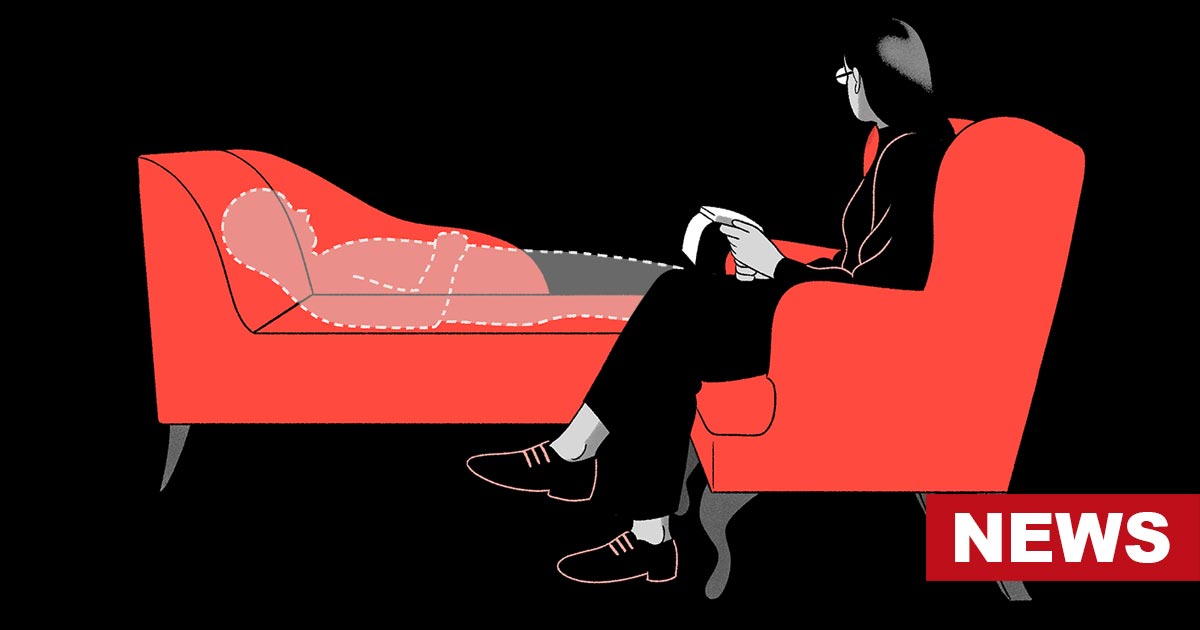Recently, several individuals living in metropoles took to the Hindustan Times to narrate harrowing and negative experiences at therapy. Their comments revealed how, despite the growing psychiatric infrastructure in India, social prejudice still plagues mental health care.
Their experience also exposed the ill consequences of availing poorly advised “bad therapy” sessions and the services of unhelpful, unqualified, as well as harmful mental health professionals (MHPs).
For instance, Rittika (name changed) recently went to therapy. She had come out as a lesbian to her family, but their rejection distressed her. So, she needed help with the uncertainty and low self-esteem.
However, the sessions did more harm than good. She elaborated: “My therapist at the time told me that my father only wants what is good for me, and I should apologize to him. This made me feel as if I should be ashamed of my sexuality.” She terminated her sessions and sought help with a queer support group. And she has never been happier.
Similarly, when Rahul (name changed) voiced his concerns around porn-addiction and his desire to not have children, his psychiatrist wasn’t very helpful.
The former elaborated: “After a few sessions, when the topic came up again, she said I didn’t want kids because I was selfish. I didn’t understand how it impacted me at that point in time. It was only when I went to a different therapist that I was able to understand what a terrible experience I had. She also discarded my porn addiction as normal. I wouldn’t recommend her to anyone. She would often share stories of other patients with me, which meant she shared my stories to others as well.”
Avni (name changed) also had an infuriating experience with her ADHD diagnosis. After she was put through a range of expensive and time-consuming behavioral assessment tests, her symptoms were dismissed as “mild depression”. The therapist did not take into account the difficulties in her personal and professional life and offered her generic, unhelpful advice.
Elaborating on the experience, she said: “These tests attempted to analyze me in ways that felt hurtful and offensive. It said I struggle with communication and therefore have trouble forming lasting relationships. I work in the communications field, have a strong support system and have been with my partner for a decade. So I don’t know where the assessment was coming from. It was not only useless but also harmful.”
Do Social Stigma Still Plague Therapy In India?
Therapy, a vital tool for promoting mental well-being, continues to face social stigma in India. Despite growing awareness about mental health issues, many individuals hesitate to seek professional help due to societal judgment and misconceptions surrounding therapy.
The stigma attached to therapy often stems from cultural beliefs that prioritize emotional strength and discourage open discussions about mental health. As a result, individuals grappling with mental health challenges may choose to suffer in silence rather than face societal scrutiny.
Social norms also dictate the advice given during therapy sessions. Individuals who do not conform to the society’s conventional notions often find therapeutic sessions to be painful. They also find the professional advice too problematic to trust and, in the process, develop an aversion to mental health care.
Emerging research, in fact, suggests that topics like homosexuality, premarital sexual relations, porn addiction, suicide ideation, or sexual issues are taboo in therapy across the country.
Most mental health experts display a reluctance to discuss such sensitive yet important issues openly and often willingly offer outdated, prejudiced, and social-norm-conforming advice. Such practices often serve to exacerbate the mental health conditions of the respective client instead of healing him/her or providing help to navigate difficult situations.
Raj Mariwala, director of the Mariwala Health Initiative, said in a recent interview with a leading Indian daily: “Psy disciplines are historically based on social norms, and treatments were used as a way to correct or punish … [It] has not looked beyond making practitioners structurally competent, and there are massive gaps in the care provided.”
Mental Health Consequences Of “Bad Therapy”
Instances of unhelpful, harmful, or “bad therapy” can have severe mental health consequences. Unqualified or unscrupulous practitioners may exploit vulnerable individuals, leading to negative experiences and exacerbating mental health issues like depression, anxiety, and low self-esteem.
Therapy advice from such professionals only serves to legitimize and strengthen the causes of the mental health disorders instead of doing away with them. It also underscores the importance of choosing qualified and licensed professionals who adhere to ethical standards.
Approaching Therapeutic Advice The “Right Way”
When seeking therapeutic advice, it is essential to approach the process with an informed and open mindset. Firstly, one should understand that seeking therapy is not a sign of weakness but rather an act of self-care and empowerment. Normalizing therapy as a means of personal growth can help reduce the associated stigma.
Secondly, conducting thorough research and seeking recommendations from trusted sources can help individuals find reputable therapists who specialize in their specific needs. It is also essential to recognize that not all therapeutic practices are created equal, and individuals should exercise caution when seeking therapeutic advice.
However, establishing a strong rapport and open communication with the therapist is a significant parcel of effective treatment. Lastly, it is important to actively participate in the therapeutic process, including setting realistic goals, practicing self-reflection, and being open to personal growth.
Know More About –
Related Articles –
- 3 Fights That Signal It’s Time You Need Couples Therapy
- 10 Commandments for Partners in Couple’s Therapy
- 11 Signs You Need To Talk To A Therapist









